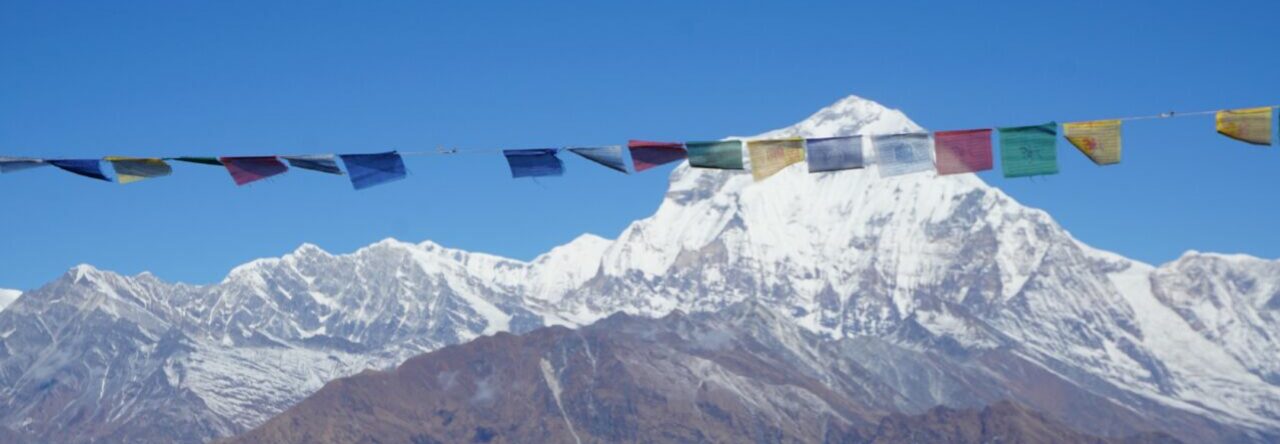I’ve already written about the glorious day I spent at a farm in Phyang with my new friend, Ajaz Ahmed. I was lucky to visit another farm last weekend, this time staying overnight at the family home of Stanzin Lhwang in Nimmo. I felt that I had stepped out of Helena Norberg-Hodges’ book into the traditional farm culture. Nothing is wasted, farming is ecologically sound, and eleven members of the family live in a large white house built of bricks and stone, with those artistic wooden windows in every room. There are even rooms underneath the house (like the Nepalese homes in the Khumba) where the animals stay in the dead of winter.
The doors are low and the door sills high to keep the cold out in winter. I walked into the kitchen/living/dining area, a huge space that reminded me of a temple on Inle Lake in Myanmar that I had visited last year. Pillars held up the roof, mattresses covered with Tibetan rugs lined two sides, a small wood stove, which burned dried yak dung, stood in a corner, and two more larger stoves were used for cooking. One whole wall displayed beautiful ornamental copper pots in glass cases. Washing was done in huge metal bowls, and there was always steaming chai (milk tea) available. I was welcomed by grandparents, parents, and a sister, and enjoyed watching the loving, joyful way Lhwang cared for his two 1/2-year-old son, a most precocious, happy child. It made me wish that the world could live in a more cooperative manner like this. Lhwang’s wife and daughter live in Leh, where the daughter is in school and the mother is teaching, but they gather at the farmhouse most weekends. During the evening meal the great-grandma was holding her prayer wheel and her beads and softly repeating mantras. I saw this last night at my guest house and wished I could capture the serenity of these wonderful old faces.
In the afternoon there was some more plowing and planting of potatoes, with lunch served in the field. I noticed that there were many small fields with stands of tall thin trees surrounded by mud-brick walls, and was told that these were cut down in the winter for fuel, only to grow once again in the summer. Nothing was left to chance.
Lhwang and I talked about everything, from the fast-disappearing tradition of arranged marriage to rebirth and Rinpoches. He has traveled extensively as a guide, and knows several languages besides Tibetan. He shared all kinds of information about the care of the family gardens, the rotation of crops and the gathering of seeds, and even the two days a week when one is allowed to wash clothes or bathe in the stream running between the farms. When mud is dug for bricks, you must first remove the topsoil, and then dig up the inferior dirt from below, before replacing the good soil. Everything that is done has the preservation of the land in mind. And as with Ajaz’s family, cooperation among villagers is paramount.
Each family has its own religious shrine (a small room with tiny silver containers for water and various paintings or replicas of the Buddha), usually tended by the grandparents. They burn incense and chant at night. I lay on my bed in a a beautiful room with large windows on two sides, reached by a steep ladder to the upstairs roof, and listened to the mantras late into the evening.
As we walked to the bus in the morning, everyone stopped to talk and share news. I went back to Leh alone, since Lhwang had been asked to help a neighbor with his plowing. This is a short season and timing is very important. We will meet later in the week to plan our treks.
In a lighter vein, let me warn you travelers about Indian banks. My experience with them has been dreadful. They define inefficiency. You are sent from office to office, where nobody seems to be working, but many are chatting on the phone. Finally, when you ask if anybody wants your money, they send you to Thomas Cook, which is most efficient and charges no fee.
I want to thank Cary for posting these blogs. Both of us are having problems with the paragraphing. I think wordpress is just playing with us and trying to challenge our readers. We’ll solve it soon, I hope. Please be patient!

